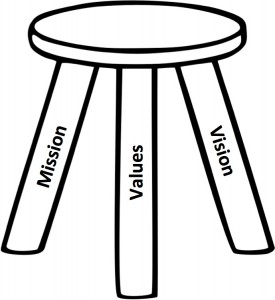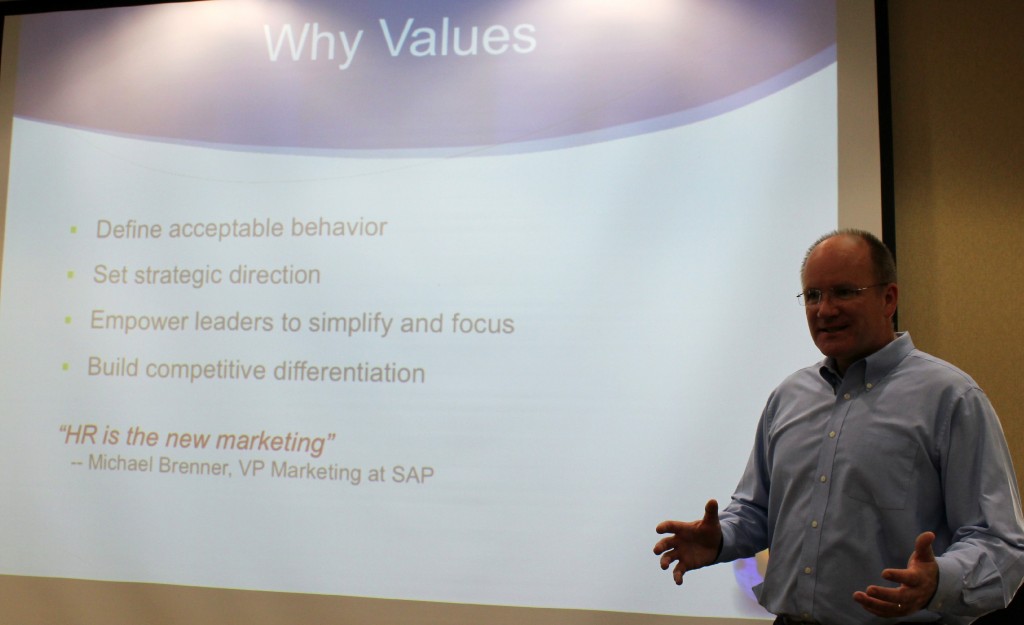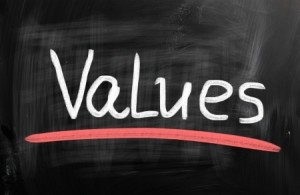4 Reasons Values Matter More Than Mission & Vision
 Most business leaders understand – or are at least aware of – the concept of Mission, Vision, and Values. The Mission and Vision statements describe what the company does and where it’s going. But Values are often treated as an afterthought, to keep the three-legged stool from falling over.
Most business leaders understand – or are at least aware of – the concept of Mission, Vision, and Values. The Mission and Vision statements describe what the company does and where it’s going. But Values are often treated as an afterthought, to keep the three-legged stool from falling over.
How do we know this? Because most companies embrace the same set of values.
One of the problems here is that many people consider values the same thing as ethics. Yes, ethics is very important. But ethics is limited to defining moral clarity: what’s considered right vs. wrong, and good vs. bad. Not surprising, moral principles are considered to be the same across all organizations.
On the other hand, the selection of Values is a strategic issue.
This raises the question: do business leaders really understand why values matter?
4 Reasons Values Matter More
First, we need to be clear that there are two types of values: Common Values and Differentiating Values. Both contribute to an organization’s Core Values, which I argue matter more than Mission and Vision.
Here’s why Values matter more:
- Values define expected behavior. These are the guiding principles of the organization, derived from the 17 Common Values. For example, many businesses have selected such common values as Integrity (Honesty), Fairness (Inclusiveness), and Community (Corporate Citizenship).
- Values set strategic direction. Well-defined Differentiating Values ensure that all stakeholders understand: what is produced or provided; how it gets done; who is involved; where it belongs; and when and why it matters.
- Values build competitive differentiation. Well-defined Differentiating Values clearly highlight the uniqueness of an organization; outline a meaningful purpose; and increase brand value.
- Values empower leaders to simplify and focus. Whether someone leads 10 or 10,000 people, well-defined values help leaders cut through the maze of issues and get everyone aligned around the top priorities.
So, if you and your leadership team are going to invest time and energy into defining your three-legged stool for your organization, I suggest you start with Values. If you get this part right, the other two parts are likely fairly easy to create.
How can values benefit your business?

From “Forging Values – Transforming businesses from good to great by instilling values that make a difference.”









